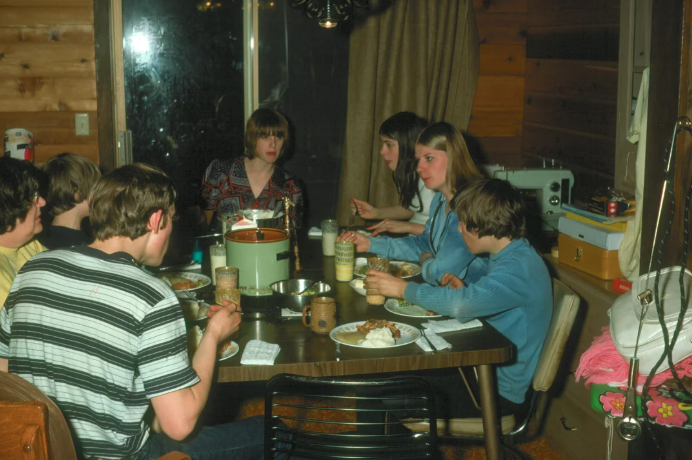Let’s step back for a moment and take stock of our situation, shall we?
We are currently living through a global pandemic which, up until a month ago, was a theoretical disaster we’d only ever seen in movies and history books. We now tap into the news each day and watch the numbers of confirmed cases and deaths rising. A growing number of us have family, friends, or acquaintances who have fallen ill or died. Even if we don’t, we may have loved ones who are elderly or immunocompromised or we may fall into that category ourselves, so we fear what exposure to this virus might bring.
At the same time, we are stuck in our homes without our normal social outlets. Some of us are alone and lonely. Some of us are trapped in homes that are not healthy or safe. Even those of us who appreciate having some extra family time might be feeling the strain of constant togetherness. People are stressed over trying to work and educate kids and try to provide structure and security in the midst of chaos.
Some of us are forced to go to work in essential jobs that put our lives at risk. Some of us are newly and unexpectedly unemployed, while others are watching businesses they’ve built crumble before their eyes. Some of us are wondering how we’re going to put food on the table. Many of us have watched future plans and goals and dreams being swept away, just like that. We know that the economic fallout of this will be huge, but we don’t know how huge or what that will mean for us individually or collectively.
Our lives have been upended, quickly and with very little warning. We’re surviving, most of us, but that doesn’t change the fact that life as we know it has been dramatically altered. And we don’t know when or how or if things will return to “normal.”
Then there’s the human toll of the virus itself. We bear witness to heartbreaking stories from medical workers on the front line. Medical workers who don’t have enough supplies and are having to pile bodies into refrigerator trucks. Bodies of patients who died without loved ones by their side. Patients whose belongings are piling up in hospital storage rooms, waiting for the day when family members can come retrieve them. Family members who can’t even gather together for funerals to comfort one another as humans do.
And that’s just an overview. And it’s only been a month. And we’re not yet at the peak. And we’re being told there may be resurgences in coming months, meaning we don’t know what the next year holds.
This is no small thing, friends.
Trauma is defined as the emotional response to a terrible event. And it’s totally understandable that a global pandemic and sudden, widespread economic hardship would evoke a strong emotional response in most of us. And yet, many of us likely haven’t thought about this experience as “trauma” because it hasn’t been one single event. It’s a slow emergency of sorts, one we had to prepare for before we saw it for ourselves. And now we’re living in a weird state of limbo where nothing feels normal, widespread worry and uncertainty surround us, and yet it’s all covered in a thin veneer of calm.
That veneer is deceptive. On the surface, we’re just being asked to sit at home and watch TV—what’s so traumatic about that? But simplifying it in such a way denies the entire reason we’re doing it—to prevent mass death and suffering as much as possible. That’s a heavy reality. We’ve had to upend life as we know it in order to preserve lives in general.
And yet even with our seemingly extreme efforts, we’re still watching the numbers climb and seeing the terrible stories. Even if we aren’t directly impacted, we’re still immersed in it and experiencing trauma vicariously. If we have any sense of empathy, we will have an emotional response—one that we might not recognize, since this is like nothing we’ve experienced before.
Licensed professional counselor Jennifer Yaeger shared some words of wisdom about our current circumstances and the importance of acknowledging the emotional and psychological toll of it all on Facebook. She wrote:
“I want to acknowledge that living through this pandemic is a trauma.
As a trauma specialist, I think there are a few things that are helpful to know:
– Parts of our brain have shut down in order for us to survive
– As a result, we are not able to fully process a lot of what is going on around us
– Feeling somewhat numb and out of touch with our emotions is normal, especially if you have lived through trauma before
– Some people are also more apt to feel hypervigilant or anxious, while others become hypoactive or depressed. Neither means anything other than indicating your predisposition to dealing with extreme stress
– In-depth processing of trauma happens years later, when we feel emotionally safe to deal with it
– When in the midst of trauma, just getting by emotionally and functionally is okay. Lowering expectations and being kind to yourself and others is vital.”
So don’t judge whatever you’re feeling—or what anyone else is feeling—through all of this. When you feel overwhelmed or stuck or numb—or even guilty for not feeling any of these things when you’re in a state of joy or gratitude—just let it be. Most of us are experiencing a dozen different feelings every hour, so do what you need to do to care for mental and emotional health.
Be gentle and patient with yourself, and do the same with others. This is hard, but we’ll get through it. Our emotions are one thing that unite us as human beings, so if nothing else, we can at least take comfort in the fact that none of us is alone in what we’re feeling.





































